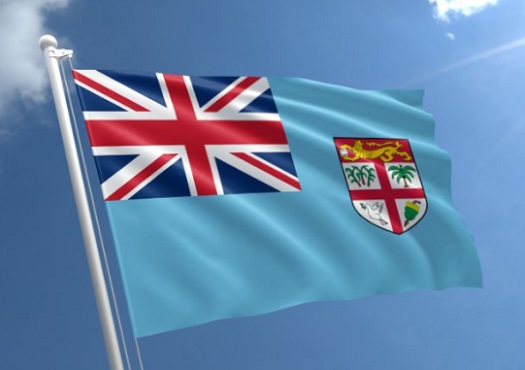Nikhil Prasad Fact checked by:Thailand Medical News Team Feb 04, 2025 2 months, 1 week, 4 days, 4 hours, 42 minutes ago
Medical News: Fiji's Health Authorities Confirm Dengue Outbreak
The Ministry of Health and Medical Services of the Republic of Fiji has officially declared a dengue fever outbreak in the Western Division. This alarming announcement comes as the nation grapples with a rising number of dengue cases, particularly among younger populations.
 Dengue Outbreak Declared in Fiji
Dengue Outbreak Declared in Fiji
As of February 3, 2025, approximately 200 cases of dengue fever have been reported in the Western Division alone. The most affected age group falls between 10 to 29 years old, indicating that children, teenagers, and young adults are at the highest risk. With Fiji’s rainy season continuing until April, the Ministry has warned that the number of cases is expected to rise in the coming weeks.
https://www.health.gov.fj/
This
Medical News report aims to provide a comprehensive overview of the situation, including the nature of dengue fever, its transmission, and preventive measures that residents and visitors should take to protect themselves. The outbreak is a significant public health concern, especially given that in 2024, Fiji reported over 2,033 dengue cases.
A Recurring Threat: The Impact of Weather and Travel Advisory
Dengue fever is not new to Fiji, and outbreaks have been recorded in previous years, often coinciding with the country’s wet season. Heavy rainfall and warm temperatures create the perfect breeding ground for mosquitoes, particularly the Aedes species responsible for transmitting the dengue virus. This has been exacerbated by a series of adverse weather conditions that have persisted since Christmas, leading to an environment highly conducive to mosquito population growth.
The United Kingdom’s Travel Health Pro has advised travelers to take necessary precautions when visiting Fiji. However, the U.S. Centers for Disease Control and Prevention (CDC) has not yet included Fiji in its Global Dengue Outbreak notice. Despite this, health authorities emphasize that dengue fever remains a serious threat, especially in tropical regions like Fiji, where mosquito populations are abundant year-round.
Understanding Dengue Fever and Its Risks
Dengue fever is a mosquito-borne viral infection caused by the dengue virus, which has four known strains: DENV-1, DENV-2, DENV-3, and DENV-4. Once infected, individuals may experience mild to severe symptoms. While most people recover within a week, severe cases can lead to serious complications, including internal bleeding, organ damage, and even death.
Common symptoms of dengue fever include:
-High fever
-Severe headaches
-Pain behind the eyes
-Muscle and joint pain
-Nausea and vomiting
-Skin rash
-Fatigue and weakness
More severe cases, often referred to as dengue hemorrhagic fever, can cause internal bleeding, low platelet counts, and blood plasma leakage, making hospitalization necessary. The
public is urged to seek medical attention immediately if they experience symptoms, as early diagnosis and proper medical care can significantly reduce the severity of the disease.
Government Response and Preventive Measures
In response to the outbreak, the Ministry of Health has implemented a Dengue Action Plan that includes intensive mosquito control measures, public awareness campaigns, and enhanced surveillance of affected regions. Health teams at the divisional and sub-divisional levels have been activated to monitor the situation closely, ensuring early recognition and management of new cases.
Additionally, community engagement has been encouraged, with officials urging residents to eliminate standing water around their homes, use mosquito repellents, and sleep under mosquito nets to reduce the risk of infection. Public hospitals and clinics have been put on high alert to provide timely treatment and referral for severe cases.
Conclusion: Staying Informed and Safe
The ongoing dengue outbreak in Fiji is a stark reminder of the importance of proactive public health measures, especially in tropical climates where mosquito-borne diseases thrive. While the government is taking steps to curb the spread of the virus, individuals must also take personal precautions to protect themselves and their families.
Residents and travelers alike are advised to stay informed, follow health advisories, and seek immediate medical attention if they experience symptoms of dengue fever. With the wet season continuing, authorities remain vigilant in their efforts to mitigate the outbreak and prevent further escalation.
For the latest Dengue News, keep on logging to Thailand
Medical News.
Read Also:
https://www.thailandmedical.news/news/unprecedented-deadly-flu-surge-in-japan-creates-panic-as-hospitals-get-overwhelmed
https://www.thailandmedical.news/news/flu-wreaking-havoc-in-romania-as-133600-infected-in-a-week-and-22-die-while-10950-are-hospitalized
https://www.thailandmedical.news/news/u-s-cdc-warns-that-covid-19-cases-are-starting-to-rise-across-america-amidst-an-alarming-flu-surge
